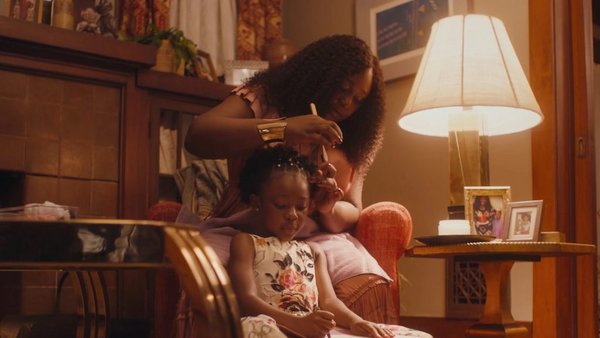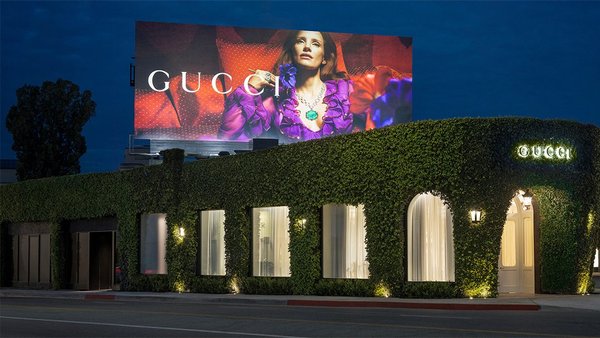Artful Dodger /
A darling of the art world, the holy grail for sneakerheads and a nuisance for luxury brands, MSCHF enrages, confuses and delights in equal measure. Here’s how the Brooklyn collective has turned playful provocation into an art form
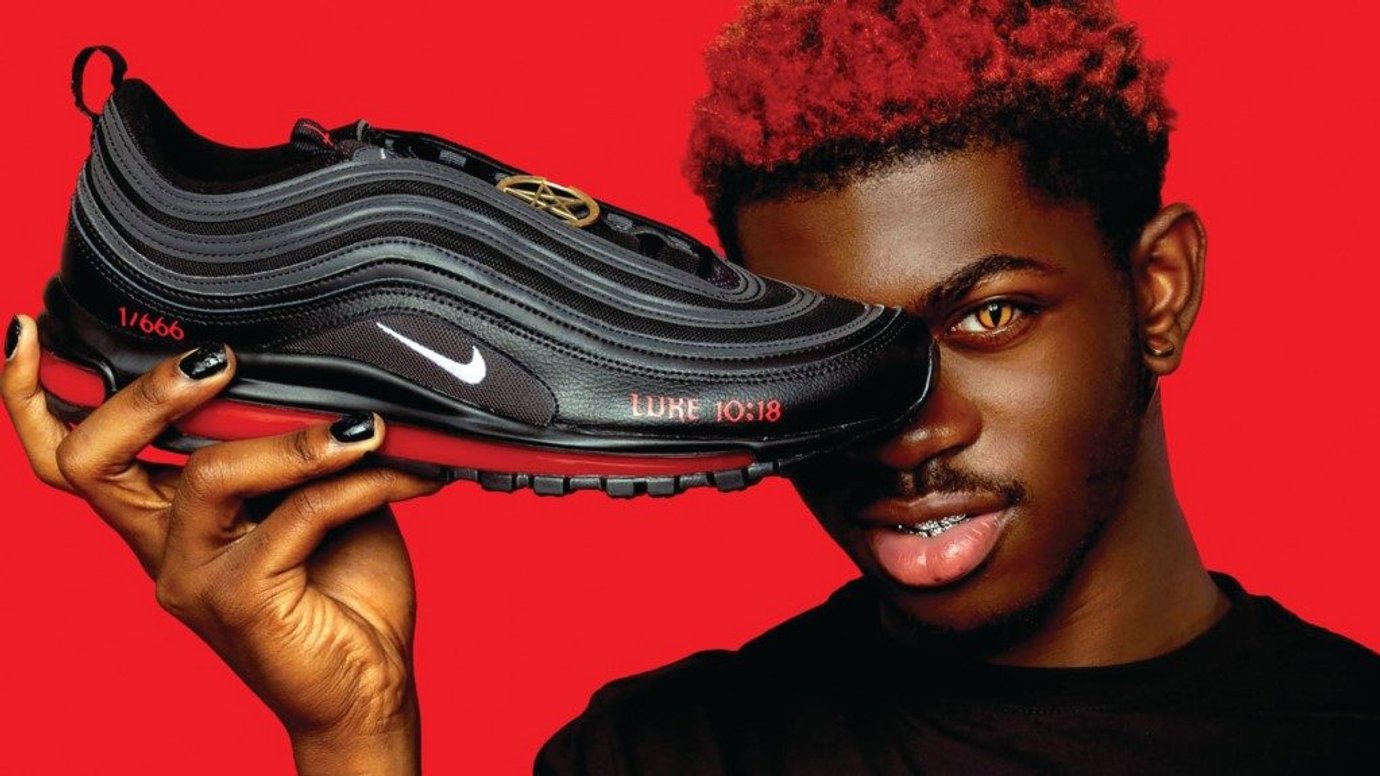
A handbag smaller than a grain of salt that requires a microscope to view the Louis Vuitton monogram engraved upon it. Bootlegged Nikes with a drop of human blood in each sole — 666 Satanic pairs, of course. Popsicles designed to resemble various billionaires, including Jeff Bezos, Bill Gates and Mark Zuckerberg that invited people to ‘eat the rich’. These are just three of the weird and wonderful projects that art collective MSCHF has dropped over the past four years.
The Brooklyn-based art collective started as an advertising agency in 2016, working on non-traditional marketing campaigns for brands including retail giant Target and mattress company Casper, but in 2019 pivoted to focus solely on its own projects. It has since dominated headlines and become the subject of multiple lawsuits thanks to creations that skirt the line between pranks and provocative social observations. The Guardian called MSCHF ‘the Banksy of the internet’, while the collective has also drawn comparisons to Andy Warhol, streetwear brand Supreme and 1980s electronic band The KLF (notorious for a stunt in which they burned a million pounds). MSCHF’s portfolio includes collaborations with celebrities such as The Weeknd, Lil Nas X and Mr Beast, as well as brands Tiffany & Co, Fenty and Crocs.

‘I never really started MSCHF with any particular intention beyond creating objects and interventions with a point of view, typically in ways that misused the initial intentions of the medium and format,’ Gabriel Whaley, co-founder and CEO, told Sotheby’s in 2021. The drops are subversive and pass cheeky commentary on the issues of the day. MSCHF’s first official project, a collaboration with artist Guo O Dong, was designed to demonstrate the threat posed by the digital world. The Persistence of Chaos is a Samsung laptop running six pieces of malware that have collectively caused financial damages worth over $95bn. The laptop sold for $1.3m at auction in May 2019. Four years on from this conspicuous bow, MSCHF has built a devoted following eagerly anticipating its next surprise.
Lukas Bentel, MSCHF
Culture vulture
The group describes many of its creations as ‘cultural readymade’. Like Marcel Duchamp’s urinal, these are customisations or recontextualisations of existing objects to create new artistic meaning. ‘We are using the building blocks that everybody witnesses when you walk out into the world and experience today’s culture, and we’re using it as material for narrative art objects,’ Lukas Bentel, co-founder and creative director, told The Hollywood Reporter in 2021.

No matter the object, MSCHF has proved brilliant at generating conversations around it. Whaley, in fact, described the collective as an ‘attention and fame machine’ on the Prehype podcast. The secret to generating attention for each drop is a combination of an easy to grasp, outrageous concept with a deeper social commentary on human behaviour. ‘When we’re making drops, one of the core criteria is that they should hit in one sentence, but hit harder in three,’ Kevin Wiesner, co-founder and CCO, told The Hollywood Reporter. The single sentence to describe the project This Foot Does Not Exist, he explained, is that it’s a bot that sends AI-generated photos of feet. But this seemingly silly tech opens up a more serious discussion around what constitutes pornography.
Sometimes, MSCHF’s projects draw their deeper meaning from their context. During Miami Art Week in December 2022, MSCHF grabbed headlines for creating an ATM that ranked every user by the money in their bank accounts. Wiesner told Dezeen that this ATM Leaderboard was an ‘extremely literal distillation of wealth-flaunting impulses’, and explained that Art Basel was specifically chosen because it’s ‘a place where there is a dense concentration of people renting Lamborghinis and wearing Rolexes’. The location of the installation helped bring the commentary on ultra wealth to life.
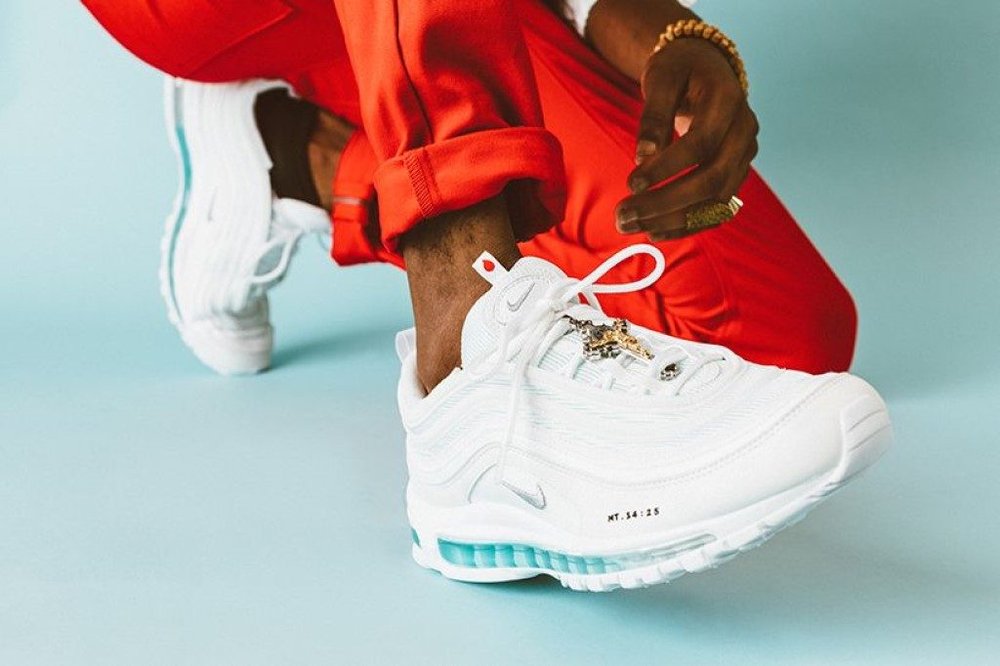
Wiesner cringes at the word ‘viral’ but says that MSCHF is most successful about attracting attention when it fuses different areas of culture together. ‘It’s in the overlap of spheres that you have the most potential that people will feel passionately about something,’ he told ARTNews. In October 2019, for instance, MSCHF merged the worlds of Catholicism and sneaker culture when it created its $1,425 Jesus Shoes. These Nike Air Max 97s were injected with consecrated water from the Jordan River and promised to bestow the wearer with the ability to walk on water. The shoes proved popular with Christian youth pastors, as fans of both sneakers and God.
Needfully provocative
MSCHF’s projects are not needlessly provocative. The Jesus Shoes, for instance, were designed to be a commentary on the glut of collabs (even Jesus was getting in on the act). ‘We make narrative-driven products rather than pure stunts, because they’re based on insights that are [a] little bit more eternal, than say, Logan Paul going to Times Square and pulling someone’s pants down on camera,’ Whaley told Prehype.
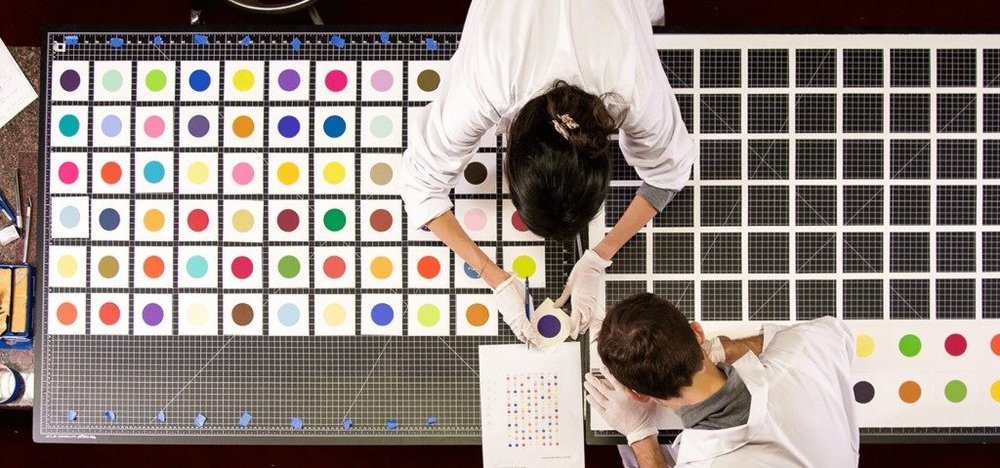
That said, MSCHF is not scared of the outrageous. For one notably controversial drop in April 2020, MSCHF bought a $30,000 Damien Hirst painting featuring 88 multi-coloured dots on a white canvas. It then cut out each of the dots and sold them individually for $4,400 each, with the remaining Swiss-cheesed white canvas selling for $261,400. ‘Buy[ing] a Damien Hirst painting and chop[ping] it up into pieces is something that no one in their right mind would do,’ Bentel told The Hollywood Reporter. He added, ‘If you hold something as a sacred object and don’t give yourself the permission to touch it or engage with it or chop it up, that’s a missed opportunity. We’re not really afraid of that here.’
Much of MSCHF’s work comments on consumerism and spending (case and point, its $550 bag labelled ‘Made In Italy’ was produced in a small Texan town called Italy). But MSCHF also regularly draws on other polarising issues in the US today. For Drop #30, it turned three pricey medical bills into artworks and sold them to help wipe out $73,360 worth of medical debt. Drop #54, meanwhile, spoofed US gun buyback schemes by offering to transform people’s firearms into swords instead.
Tom Beckman, Weber Shankwick
For MSCHF nothing and no one is off limits. ‘We are big in the “ask forgiveness, not permission” school,’ Wiesner told the New York Times. Even if this means threats of legal action. Indeed, some of the biggest brands in the world have sued, issued cease and desist letters or ‘strongly recommended’ that MSCHF shut down its drops. It has clashed with Subway, Facebook, Kellogg’s and Disney. Hermès in particular was not especially thrilled when MSCHF destroyed luxury leather Birkin bags to make a pun-tastic line of Birkinstock sandals (which ranged in price from $34,000-$76,000).
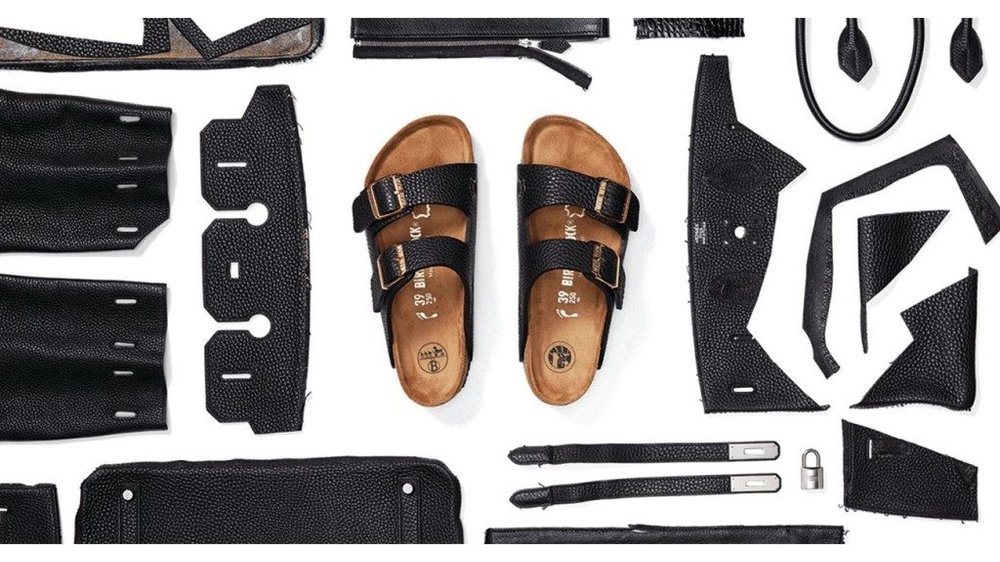
MSCHF doesn’t just commit brand blasphemy, it goes for the religious kind too. Satan Shoes, made in league with rapper Lil Nas X, saw Nike Air Max 97 sneakers revamped with a bronze pentagram on the laces and a drop of human blood in each sole. The sneakers, all 666 of them, drew the ire of Christians across the US, as well as Nike, which sued MSCHF for trademark infringement and false designation of origin. The controversy was just what the collective were after. As Daniel Greenberg, chief revenue officer and a founding member, told CNN, he was thinking two things at the time: ‘One was, “I hope Nike sues us,” and “This is 10,000 percent legal.” And man, did they make my wish come true.’ The legal matter was settled out of court, with MSCHF merely having to offer a refund to anyone who wanted one.
‘When we talk about why that makes people uncomfortable, it’s pretty obvious why Hermès or Nike would be uncomfortable with us,’ Wiesner told The Hollywood Reporter, ‘It’s because we’re taking their entire cultural cachet and subverting it to our own ends.’ But those ends justify the means according to Greenberg, who told the NYT, ‘We’re okay being hated. We just don’t want apathy.’
MSCHF’s penchant for ruffling feathers hasn’t deterred other well-known brands from partnering with the collective. In May 2022 MSCHF created a $1,000 Ultimate Participation Trophy with jewellery brand Tiffany & Co, then in August that year teamed with Rihanna’s beauty brand Fenty to create six sachets that either contained red lip gloss or ketchup. Most recently, MSCHF’s Big Red Boots ($350), designed to look like those of the anime character Astro Boy, got the authorised Crocs treatment, reimagined in yellow and boasting the footwear brand’s signature holes. MSCHF hopes to push on and work with odd partners in the future, with Greenberg telling The Hollywood Reporter that ‘playing in weirder spaces is cool’.
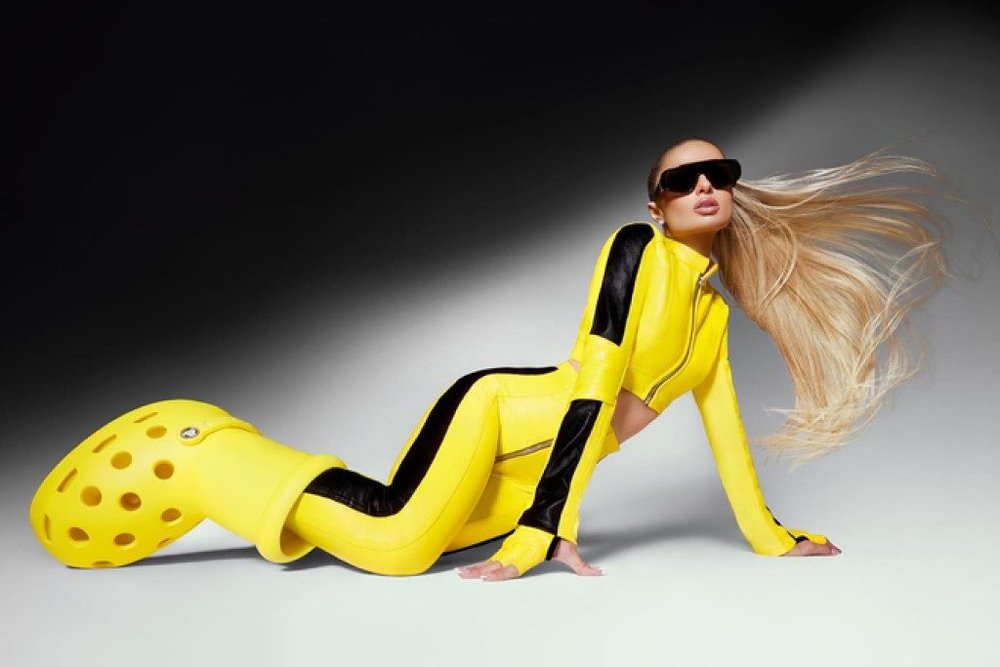
Different every time
Weirdness keeps MSCHF agile and interesting, but also makes the outfit hard to define. ‘People look at MSCHF and can’t figure out what we are,’ Greenberg told Highsnobiety. ‘Are we artists? Are we an art collective? Are we a brand? Are we in the fashion industry? Streetwear? Or is it some other space? Everyone has their own view.’
Wish you could read this? /
Become a member and you'll not just read this article but discover thousands more world-class campaigns, deep dives on brands and cutting-edge trends.
Membership includes open access to Contagious IQ, our intelligence platform that deconstructs the most creative, effective and innovative marketing ideas from around the globe, as well as exclusive briefings, webinars and training courses.
Already have an account?Sign in
Want more of the same? /
We don’t just write about best-in-class campaigns, interviews and trends. Our Members also receive access to briefings, online training, webinars, live events and much more.

